On Page SEO Services: Your Journey to Search Engine Success
In todays world, where having a presence is crucial, optimizing your website for search engines is essential. On page SEO services are incredibly valuable, in ensuring that your website ranks high on search engine results pages (SERPs). These services involve creating content that includes keywords, optimizing meta tags and ensuring a smooth user experience.
The Importance of On-Page SEO:
The importance of On Page SEO services, also known as On Page Search optimization, cannot be emphasized enough in todays era. These services involve optimizing elements, within a website such as content, meta tags, headers and images. The main objective is to improve visibility and ranking on search engine result pages. In an online environment where businesses strive for user attention On Page SEO is crucial. It serves as a guiding compass for your website towards success, by increasing the likelihood of appearing on the sought after page of search results.
Consequently this generates traffic. Enhances user engagement. Additionally, it cultivates trust and credibility among users. A well-optimized website is often perceived as more authoritative. In an era where online presence is pivotal, investing in on page optimization services is not just wise. It’s essential for businesses seeking to thrive in the digital realm.
Why Invest in On Page SEO Services?
Investing in On Page SEO Services is a smart decision. These services enhance the visibility of your website. Attract a number of visitors. By investing in, on-page SEO you are optimizing the content and structure of your website. This optimization help search engines understand your content resulting in higher search rankings.
Moreover it improves the user experience. Your webpage load quickly. Perform seamlessly on devices. The navigation becomes more fluid resulting in an user website. Furthermore optimizing your, on-page SEO allows you to effectively focus on keywords and attract your intended audience successfully.
Finally enhancing your website credibility and trustworthiness is an aspect. Both users and search engines perceive your site as being more dependable. Investing in On Page SEO Services is extremely important as it plays a role, in enhancing visibility attracting visitors and driving business growth.
Fundamentals of On Page SEO Services
On-page SEO is the foundation for increasing a website ranking on search engine such as google. It’s a process that requires an approach, to enhancing individual web pages. This optimization goes beyond appeasing algorithms. It’s about improving the better experience, for your human visitors.
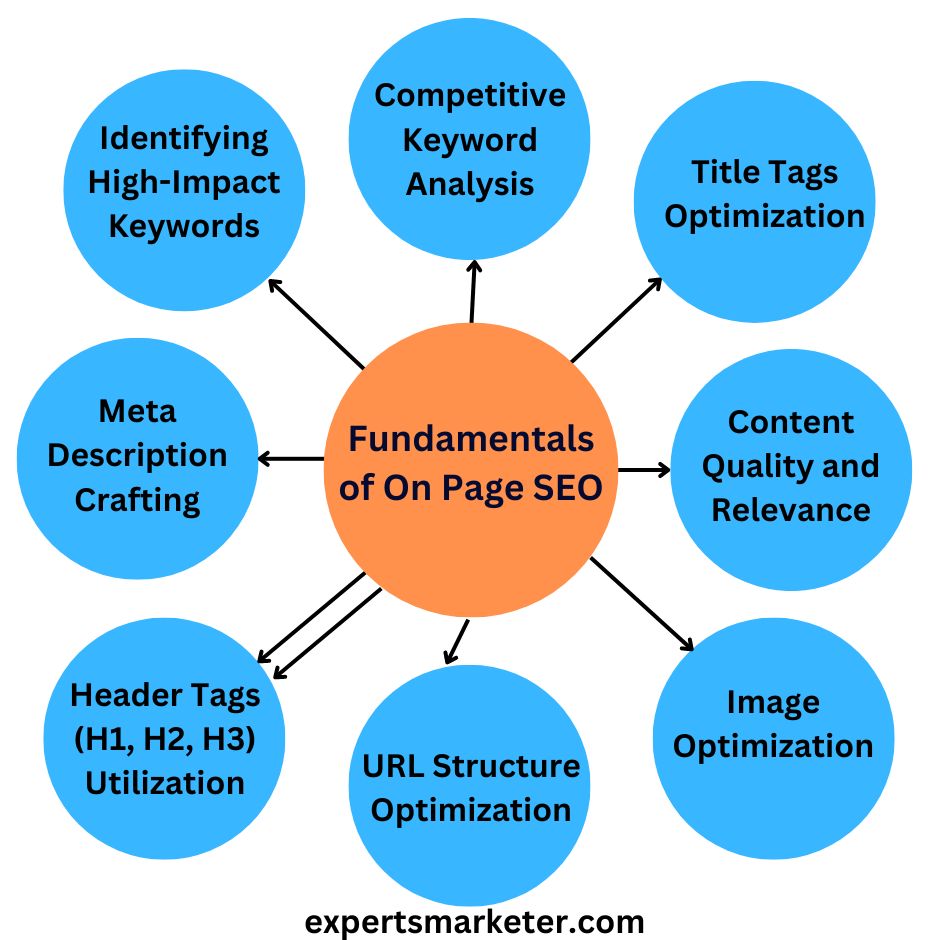
Identifying High-Impact Keywords
Start by researching words and phrases that your target audience is likely to use when searching for information related to your website. Tools like Google Keyword Planner or Ubersuggest can help. Focus on keyword with high search volume and relevance.
Competitive Keyword Analysis
Analyze the keywords your competitors are targeting. Identify which keywords are driving traffic to their sites. This can provide information. Help you in identify chance for successful competition.
Title Tags Optimization
Title tags are the first thing users see in search results. Craft unique, compelling titles for each page, including the primary keyword. Keep titles concise (around 60 characters) and engaging to encourage clicks.
Meta Description Crafting
Meta descriptions provide a brief summary of your page’s content. Write clear, concise descriptions that include relevant keywords. Aim for around 150-160 characters. A well-crafted meta description can improve click-through rates.
Header Tags (H1, H2, H3) Utilization
Header tags help structure your content and make it more readable for both users and search engines. Use H1 tags for main page titles, H2 tags for subsections, and H3 tags for further divisions. The structure outline here assist search engines in comprehending how your content is organized.
URL Structure Optimization
Create clean, descriptive URLs. Include the main keyword if possible. Avoid lengthy and complex URLs. Short, straightforward URLs are easier for users to read and remember.
Image Optimization
Optimize images by compressing them to reduce file size without sacrificing quality. Make sure to give your files names and include alt text that provides a clear description of the images content and how it relates to the page. Properly optimized images can enhance user experience and SEO.
Content Quality and Relevance
Create high quality content that caters to the preference and requirement of your intended readers. Make sure it is thoroughly researched, educational and captivating. Use keywords naturally within the content, focusing on user intent rather than keyword density. Avoid overloading your content with keywords, as it can hurt your rankings.
Content optimization
Content optimization is the act of improving the content on your websites to makes it more attractive to both user and search engines. It involves creating valuable content incorporating keywords utilizing related keywords (known as LSI keywords). Implementing effective internal linking strategies and following best practices for external linking.
When you optimize your content, you improve its visibility in search engine results. Enhance the user experience and ultimately drive traffic to your website. This is crucial for attracting and retaining your target audience while also achieving rankings, in search engine result pages.
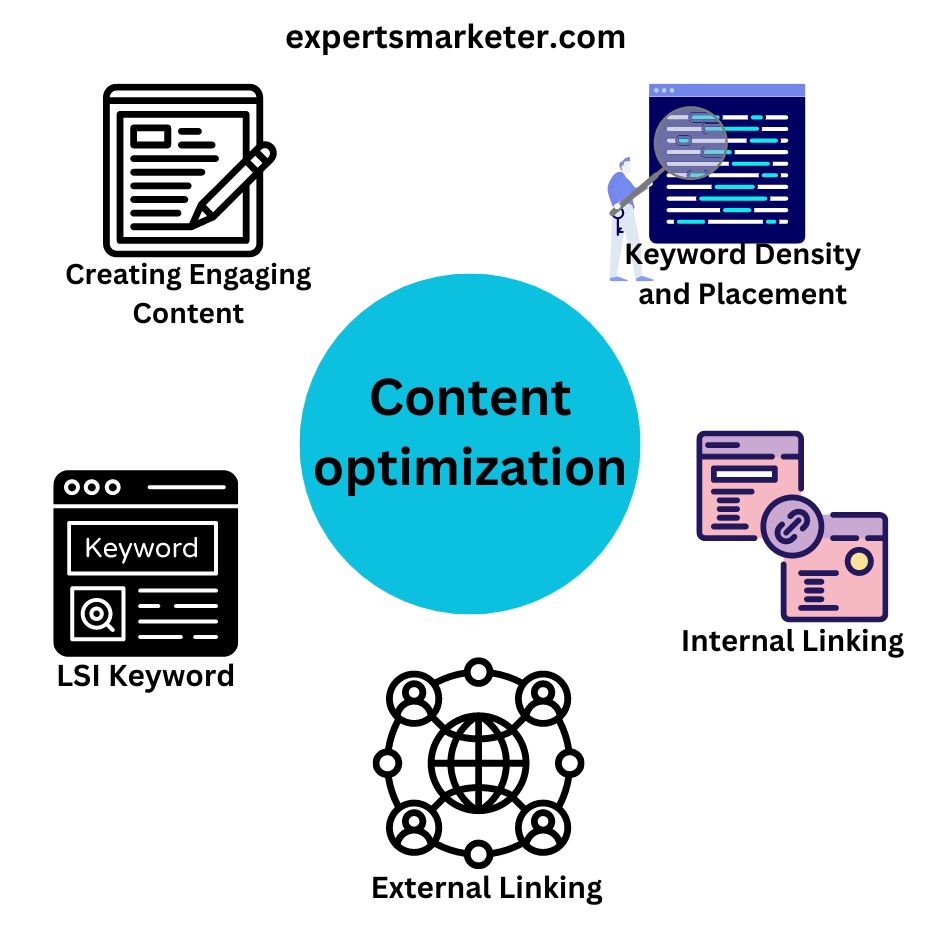
Creating Engaging and Valuable Content
The core of content optimization lies in crafting content that goes beyond mere text. Your content needs to be captivating, informative and genuinely valuable, for your audience. Engaging content capture their attention and meet to their requirement, guaranteeing that their time spent on your website is worthwhile and fulfilling.
Keyword Density and Placement
Keyword density and its placement is very important in On page SEO Services. Keywords act as the guiding lights for search engines. Thoughtful placement of keywords within your content is essential. This helps search engines understand the main topic of your page effectively. However, it’s crucial to use keywords naturally and avoid overloading your content with them, as this can negatively impact your rankings.
Latent Semantic Indexing (LSI) Keywords
To enrich your content, consider incorporating LSI keywords. These are words or phrase related to your primary keywords. Including LSI keywords provide context and depth to your content. Making it more comprehensive and understandable for both reader and search engines.
Internal Linking Strategy
Imagine your website as a vast library. Internal linking is like building well-organized pathways within this library. It help users in navigating through your content. Additionally it inform search engines about the importance and relevance of page which could potentially enhance the ranking of those pages.
External Linking Best Practices
External links, which point to other websites, can be beneficial when used wisely. They improve the credibility of your content by connecting it to trustworthy source. However striking a balance is critical. Having many external links, on your website can actually distract users. Have a negative impact on their engagement with your site.
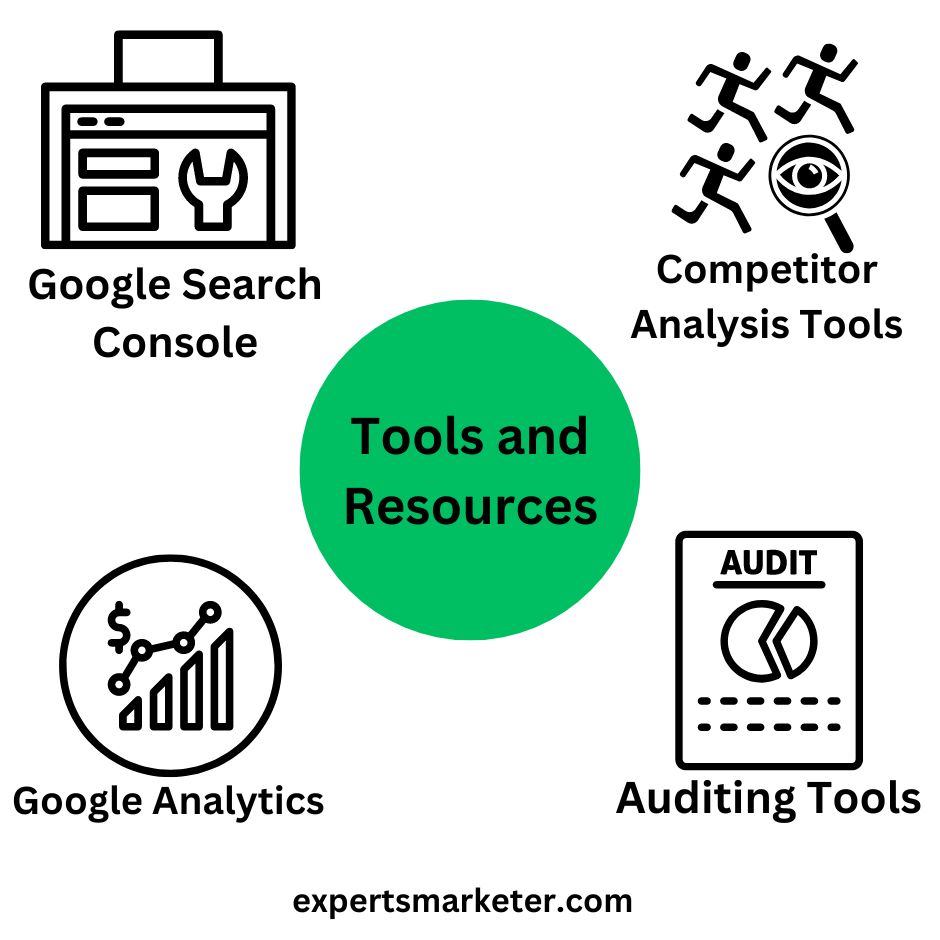
On-Page SEO Tools and Resources
These are the resources and tools that enable website owner and SEO consultant to successfully optimize their website. They include SEO plugins and extensions. Like Google Search Console, Google Analytics, SEO auditing tools and competitor analysis resource. These are useful program to make activities like keyword research, content optimization and website health monitoring. They helps in the improvement of your website search engine rankings and users engagement.
SEO Auditing Tools:
SEO auditing tools are essential for maintaining your website’s health and ensuring that it’s optimized for search engines. These tool scan your site for various SEO issues. Such as broken links, missing meta tags, slow loading pages, and duplicate content. They provide detailed reports with actionable recommendations for improvement. Regularly conducting audits of your website using these tool can assist you in identifying and resolving any problem that might have an effect on your search engine rankings.
Competitor Analysis Tools:
Competitor analysis tool offer insights, into the strategy and performance of your competitor. With these tools you can compare your website to that of your competitors, enabling you to pinpoint areas, for improvement. They reveal which keywords your competitors are ranking for, which backlinks they have, and even which content is driving the most traffic to their sites. By analyzing your competitor you can uncover chance to enhance your content, boost your link building initiative and refine your overall SEO approach.
Google Search Console:
Google Search Console is a tool, for website owners and SEO professionals. It is free tool by google that provide insights into how your website is viewed by the search engine. With Google Search Console you can submit your sitemap, track your sites performance in search results and receive notifications about matters like indexing errors or security concerns. This tool can help you understand how your site interact with the google search engine and solve any seo issue that may arise.
Google Analytics:
Google Analytics provide detailed information on visitor traffic and engagement on your website. It keeps track of the number of visitor, their demographic, the page they browse, how long they stay on your site and much more. This data is very useful for analyze the impact of your content and marketing approach. It help you to identify which page are most popular, which sources bring in the visitors and where users tend to lose interest during the conversion process. With these insights at your disposal you can make informed decisions to optimize your website performance.
SEO Plugins and Extensions:
SEO plugins and extensions play a role in improve your website performance. They are addition to content management systems like WordPress. These tools provide a range of feature. Such as analyzing keywords, offering suggestions for optimizing content and even providing on page SEO services. Their goals is to makes the optimization process easier. So that website owners with their expertise can easily utilize them.
Common On-Page SEO Mistakes to Avoid
To achieve search engine rankings and enhance visibility, it is essential to avoid common On Page SEO mistakes. These mistakes can have an effect, on your websites performance. Hinder its ability to attract and engage your target audience. Lets delve into these mistakes and discover ways to prevent them.
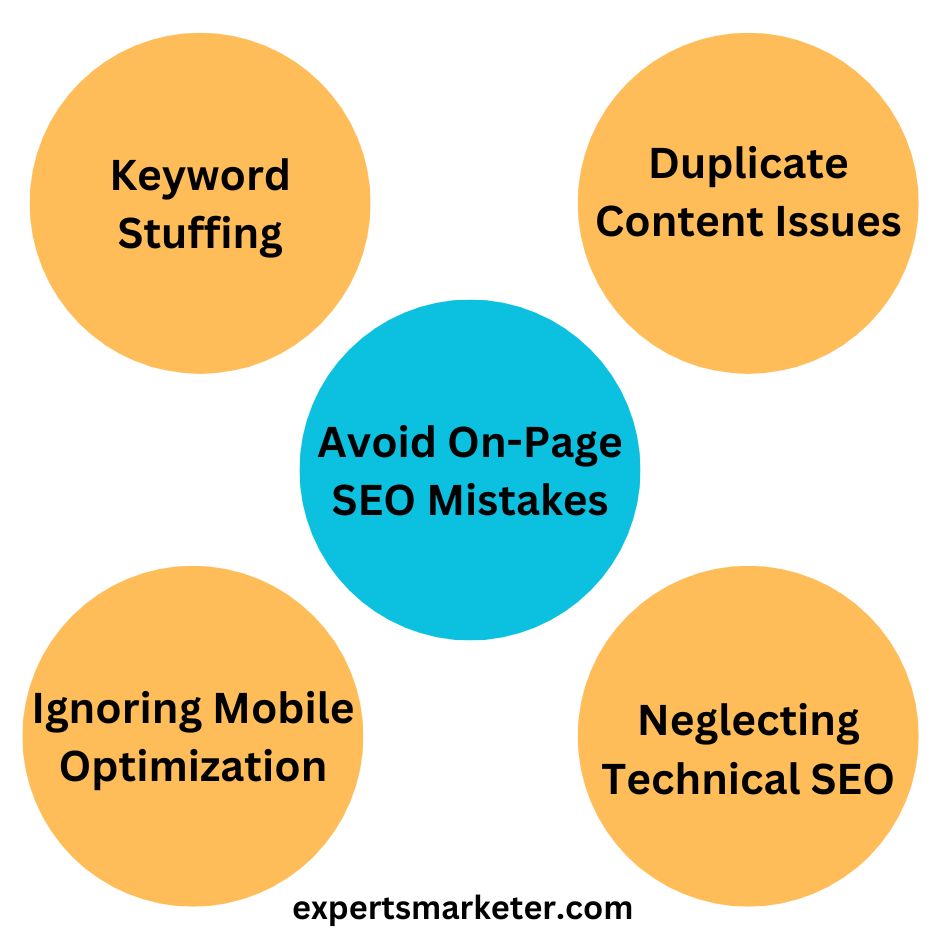
Keyword Stuffing:
Keyword stuffing is a common mistake where excessive keywords are crammed into content unnaturally. This can harm SEO ranking and produce a bad users experience. Instead, focus on using keywords naturally and in context. Write content that’s valuable and engaging to your audience.
Duplicate Content Issues:
Duplicate content occurs when the same content appears on multiple pages of a website or across different websites. This might mislead search engines and result in lower rank. To avoid making this mistake, make sure that each pages on your site contains unique and high quality information that gives value to user.
Ignoring Mobile Optimization:
In today’s mobile-centric world, neglecting mobile optimization is a significant mistake. If your website isn’t mobile friendly, mobile users may avoid it and your search engine rankings can drop as a result. Check that your site is responsive and offers a consistent experience on mobile device.
Neglecting Technical SEO:
Technical SEO issues, such as slow page load times, broken links and poor site structure, can harm your websites performance. These issue can frustrate user and lead to lower search engine rankings. These issues can frustrate users and lead to lower search engine rankings. Regularly audit and address technical SEO problems to ensure your site is running smoothly.
Not Updating Content Regularly:
Failing to update your content regularly is another common mistake. Outdated content can become irrelevant and less valuable to user and leading to decreased traffic and engagement. To avoid this, regularly review and update your content to keep it fresh and aligned with current trends and information.
So, It is important to avoid making these errors in On Page SEO. If you want to maintain and enhance your websites search engine rankings and user experience. You should prioritize producing high quality content, optimizing for mobile, addressing any SEO issues that arise and regularly updating your content. By doing you can guarantee that your website stays competitive and valuable to users.
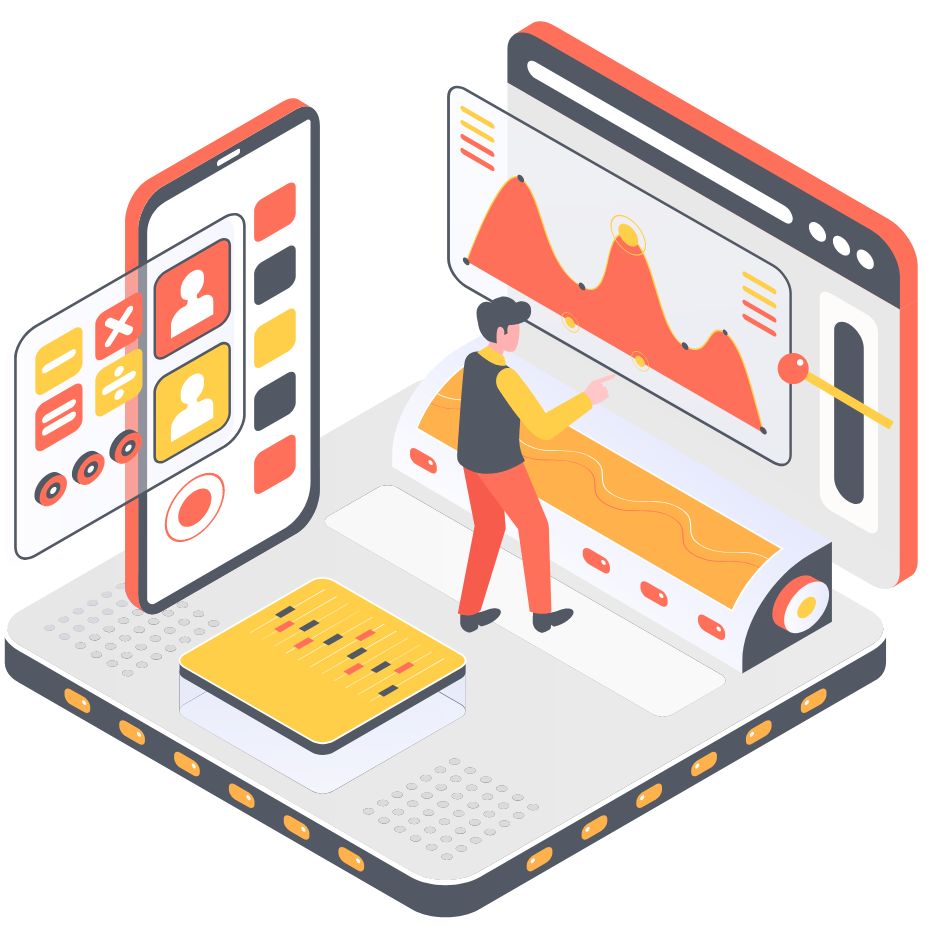
Key Takeaways from On Page SEO Services
Optimizing your web pages, for search engines is a part of digital marketing. On Page SEO services involve enhancing the content and structure of your web page to boost their visibility, in search engine results. Key takeaways include:
Keyword Strategy:
Research and select relevant keywords for your content. Use them strategically in titles, headers, and body text.
Content Quality:
Create high quality, informative, and engaging content that connect with your target audience. Focus on solving their problems or answering their questions.
User-Friendly Design:
Ensure your website is easy to navigate, loads quickly, and is mobile friendly. A user friendly site improves the overall user experience.
Optimized Meta Tags:
Craft compelling meta titles and descriptions that entice users to click on your links in search results.
Regular Updates:
Keep your content up to date. Outdated information can harm your credibility and rankings.
Internal Linking:
Create a logical structure for your content with internal links. This help user find related information and signal the importance of specific page to search engines.
FAQ
Most frequent questions and answers
On page SEO services also focus on improving the structure of your website, optimizing your content, ensuring an user experience, making it mobile friendly and page loading speed. These strategy are performed to improve search engine visibility and user satisfaction.
On page SEO involves optimizing keywords, meta tags, heading and improving user experience. Off page SEO involves building backlinks and promoting the website on external platforms to increase its authority and visibility on search engines.
Examples of on-page SEO include optimizing title tags, meta description, using relevant keyword in content, improving website speed, creating a mobile friendly design and organizing content with proper headings.
There is no specific “best” on-page SEO score. Because it depending on some factors, like competition and content type. Aim for a high score on SEO tools (above 80/100) while ensuring your content remains valuable and user friendly.
Keyword Optimization: Using relevant keywords in title, headings, and content.
Quality Content: Providing valuable, well written, and engaging content.
Meta Tags: Optimizing title tags and meta description.
User Experience: Ensuring fast loading times and mobile friendliness.
Internal Linking: Linking relevant pages within your website for better navigation.
| Keyword Research: Identify relevant keywords for your content. |
| Content Quality: Assess content for relevance, uniqueness, and readability. |
| Title and Meta Tags: Check if they’re optimized with keywords. |
| Headers: Ensure proper use of H1, H2, and H3 tags. |
| URL Structure: Use descriptive, SEO-friendly URLs. |
| Internal Links: Confirm links to relevant pages. |
| Images: Optimize image alt text and file names. |
| Mobile-Friendly: Ensure responsiveness for mobile devices. |
| Page Speed: Check loading times and optimize if needed. |
| Schema Markup: Implement structured data for rich snippets. |
| Duplicate Content: Avoid duplicate content issues. |
| SSL Certificate: Ensure a secure website. |
